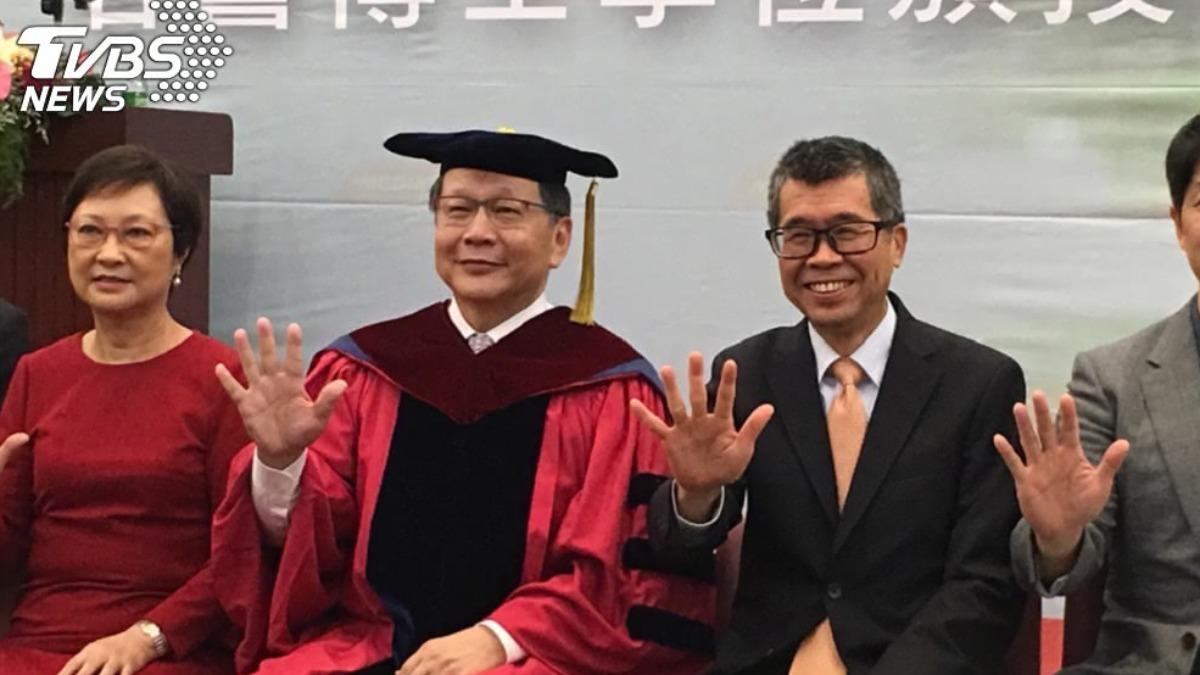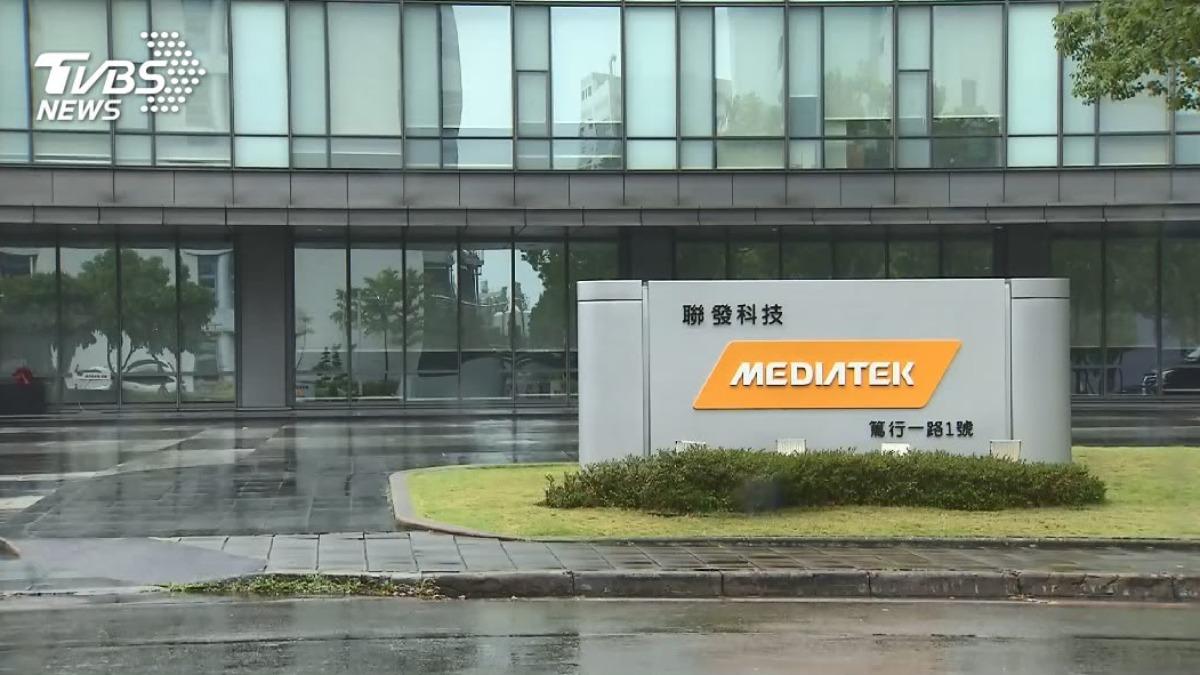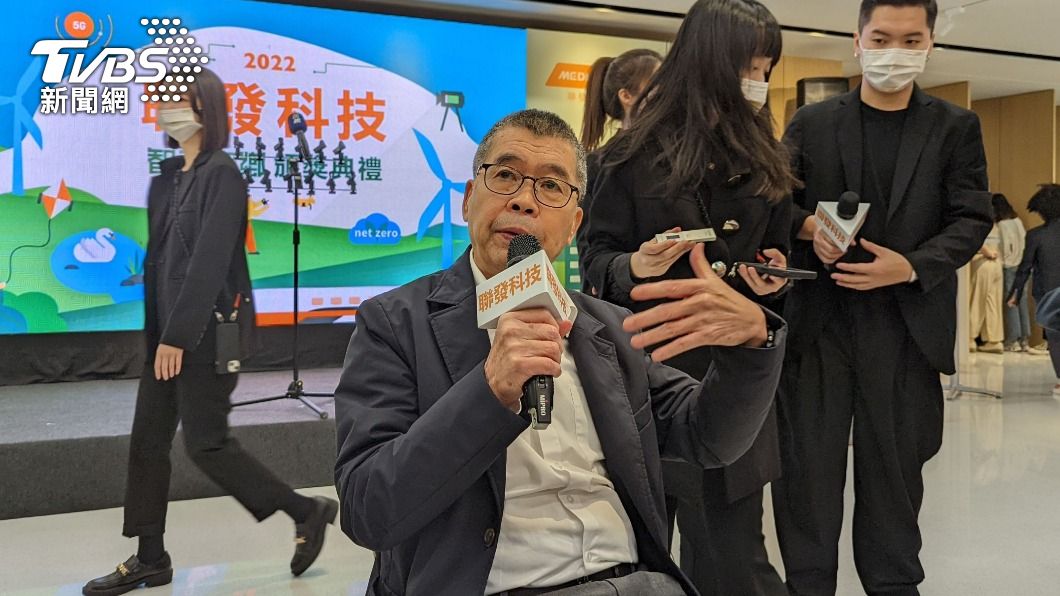TAIPEI (Business Today) — At Nvidia's (輝達) GTC Summit, MediaTek (聯發科), known for its impressive automotive chips, shone just as brightly as Nvidia in the global tech community.
In May, the IEEE (Institute of Electrical and Electronics Engineers) Robert N. Noyce Medal, known as the "Nobel Prize of Semiconductors," will be officially awarded to MediaTek Chairman Tsai Ming-kai (蔡明介). As Jensen Huang (黃仁勳) declares the intention to integrate AI into various fields, Tsai's award reason resonates similarly. Over the past decade, he has led his team to achieve "semiconductor democratization" on a global scale, propelling MediaTek into the ranks of the Top 5 Global IC Design Companies (全球IC設計前五強).
"Because of his vision and leadership in democratizing semiconductor technology, billions of people worldwide have been able to access and benefit from advanced technology." At the end of November last year, the IEEE, one of the world's leading professional associations, decided to award the IEEE Robert N. Noyce Medal for 2024 to Tsai. This statement encapsulates the reason for his award.
This also marks the second time in the 24-year history of the award that a recipient comes from a Taiwanese company (Editor's note: In total, five ethnic Chinese have won the award, including AMD CEO Lisa Su (蘇姿丰)); the first was TSMC (台積電) Founder Morris Chang (張忠謀), who won the inaugural award in 2000.
In February 2014, MediaTek had eight technical papers selected for the IEEE International Solid-State Circuits Conference, setting a new high for the semiconductor industry. Tsai was invited to give a keynote speech at an IEEE technical summit. In his speech, he mentioned that only 2 billion people globally had the capability to enjoy technology, while 5 billion had not yet used technology. This gap is the direction that fabless companies (無晶圓廠IC設計公司) strive to address, and it is also the goal that MediaTek is committed to achieving.
Today, up to 2 billion new devices using MediaTek products are launched annually, ranging from mobile phones, TVs, Bluetooth, and Wi-Fi to the Internet of Things (IoT), benefiting consumers worldwide and allowing populations in emerging countries to enjoy technology. Tsai's goal to "connect the next 5 billion people" can be said to have been successfully achieved. According to research by semiconductor research firm TechInsights, MediaTek has thus become the fifth-largest IC design company globally, with semiconductor sales reaching US$13.7 billion.
MediaTek Makes Technology Accessible

Chang Yao-wen, the dean of the National Taiwan University College of Electrical Engineering and Computer Science (台大電機資訊學院) and former president of IEEE CEDA (Council on EDA, Institute of Electrical and Electronics Engineers), said that Tsai received the award for two reasons. First, for launching a "Turnkey Solution" that combines IC boards with software, allowing smartphone brands to ship their products simply by adding casings and panels, thus simplifying technology. Second, for making chips more affordable and valuable in terms of functionality and power consumption, leading to disruptive innovation that makes technology accessible to the poor, thereby benefiting society.
Tsai, 74, who is usually low-profile and seldom accepts interviews, has won numerous awards. He finally agreed to an exclusive interview with Business Today (今周刊) this time. Right from the start, he reminded everyone that this is an honor for all 20,000 employees of MediaTek and a global achievement for Taiwan's fabless companies. He also emphasized that Taiwan has three companies among the Top 5 Global IC Design Companies, a feat made possible because foundries have empowered the fabless industry. Therefore, "It was very fitting that Morris Chang received the first Robert N. Noyce Medal in 2000."
Founded in 1997, MediaTek has been capturing markets originally dominated by Western and Japanese giants with each generation of products, from DVD players and TVs to smartphone chips, offering stronger functionality and more competitive pricing. With the rise of the Chinese market in the 2000s, Chinese smartphones using MediaTek chips have swept across the globe, penetrating from China into emerging markets in Asia, Africa, and Latin America.
Reflecting on the growth over the past decade, MediaTek's market value has increased from a low of NT$342.5 billion to NT$1.81 trillion, ranking it second among listed companies in Taiwan's stock market, just behind TSMC, until Foxconn overtook it in March this year.
Over the past decade, the global technology landscape and the IC industry have undergone constant changes. During the interview, Tsai discussed the biggest change being the challenges and opportunities brought by AI (Artificial Intelligence). For MediaTek, the battleground is no longer just China or Asia but has expanded globally with a more aggressive international strategy.
Regarding the AI trend that has had the greatest impact on the industry over the past decade, Tsai, who has always been concerned with technological evolution, recognized the incoming AI wave before others and reminded his team to prepare in advance. David Ku, the recently promoted co-COO and CFO, mentioned that Tsai had been emphasizing the importance of AI internally four or five years ago, but many did not believe it until the rise of ChatGPT last year, which finally convinced everyone.
Tsai believes that AI not only affects everyone and every business but also becomes a crucial operational tool for companies and an integral part of the product lifecycle.
In terms of operational tools, Tsai is well aware that AI can significantly enhance productivity, such as in IC design, layout, and EDA (Electronic Design Automation), all of which can be made more efficient through AI. Also, internal systems like accounting, cloud invoicing, process development automation, and even investor relations (IR) can benefit from AI. Nowadays, MediaTek uses AI to read reports from dozens of foreign institutions after each earnings call, allowing them to see summarized insights within minutes.
Five Major Product Lines Rival Top-Tier Companies

In the past decade, MediaTek has focused on international development and now has 32 offices worldwide, across Asia, the Americas, and Europe, with over 20,000 employees. Over 30% of these employees are from abroad, representing 16 different nationalities. Additionally, 25% of the management team, including nearly 70 general managers and above, are foreign talents not from Taiwan.
Moreover, MediaTek's products are no longer limited to smartphones, and its competitors in five major product lines have been elevated to top-tier companies. For instance, Qualcomm remains a competitor in the smartphone market, while Chinese companies like Unisoc and Huawei's HiSilicon are no longer mentioned. In the data center market, competitors include Broadcom and Marvell; in the automotive chip market, Intel Mobileye, AMD, Qualcomm, and Renesas; in Arm computing chips, Intel and Qualcomm; and in AI chips, Google, Meta, and others. MediaTek continues to challenge higher-level competitors, elevating the caliber and rank of its adversaries.
To demonstrate its commitment to expanding into the European and American markets, MediaTek has been hosting the MediaTek Executive Summit in the U.S. every November for the past four years. The management team makes a significant effort to fly to the U.S. to communicate and exchange ideas with American media and analysts. In early November last year, the team was led by CEO Rick Tsai and CFO David Ku, CTO Kevin Jou, General Manager of the Computing Business Unit Vince Hu, and General Manager of the Wireless Communication Business Unit Hsu Ching-chuan. Qualcomm also hosted the Snapdragon Summit in Hawaii at the end of October last year, making both events must-attend annual gatherings for major media and corporate entities worldwide.
During the summit, MediaTek communicated its achievements over the past five years and its vision for the next five years. Over the past five years, MediaTek has invested US$18 billion in research and development to advance in the AI and ASIC (Application-Specific Integrated Circuit) markets. Its seventh-generation AI chip APU can process 330 billion parameters of large language models (LLMs). Additionally, it has secured ASIC orders from customers like Meta, Sony, Logitech, Juniper, and Kontron. In 2023, ASIC shipments are expected to reach 1 billion units, with an anticipated growth of 200% over the next two years, astonishing the audience.
A foreign institutional investor mentioned that although Taiwanese companies regularly hold investor conferences, it is rare for a management team to directly enter the "enemy camp" to face off against local competitors in the U.S. market and undergo scrutiny and questioning by the media and institutional investors. This demonstrates MediaTek's confidence in taking on greater challenges and its determination to expand into the U.S. market.
One key reason for MediaTek's continued success is the company's emphasis on the development and breakthrough of research and development technologies, striving for perfection. Tsai himself is the driving force behind the company's continuous technological advancement.
A manager who once worked at MediaTek said that Tsai could immediately gauge an applicant's capabilities with just a few questions during early technical interviews. Tsai himself has a long-standing interest in the evolution of various technologies, delving deeply into them and often reading the latest technological developments and research papers before his colleagues.
Valuing Technology! Company's Paper Selected for ISSCC, Leading Among Taiwanese Enterprises
Chang cited an example where, in 2021, Google published a paper in Nature magazine that sparked significant controversy. The paper discussed how AI could solve applications for EDA software. Google had revealed this at other conferences one or two years before the official publication. "Unexpectedly, Tsai Ming-kai had already noticed it and even came to ask me if what the paper said was correct," he said.
Recalling this instance, Tsai said, "The paper discussed the application of AI in our fabless industry, and I wanted to understand what exactly Google was talking about. I asked my staff to print it out for me. I could understand the paper, which included many of the engineering mathematics I learned in university. For the parts I didn't understand, I asked people from the company to teach me, like private tutors."
Because Tsai values technological innovation, he actively encourages MediaTek's R&D staff to write and submit papers. From 2004 to the present, MediaTek has had papers selected for the ISSCC for 21 consecutive years, accumulating a total of 95 papers, the most among Taiwanese enterprises.
Not only does MediaTek encourage a high volume of paper submissions, but before 2002, Taiwan's academic and industrial sectors had no papers selected for the ISSCC for five consecutive years. At that time, Tsai funded research grants for multiple institutions, including the NTU, which led to papers from Taiwan being selected for the ISSCC thereafter.
Tsai places great importance on technological development but dislikes giving interviews, known for his low-profile demeanor in the industry. Three years ago, he accepted an honorary doctorate from NTU, although the university had approached him many years before, which he consistently declined. It was not until three years ago, on the 50th anniversary of his graduation from the NTU, that he was persuaded to accept, with the reasoning, "If even the chairman hasn't received an award, then it's even less likely for others to have the opportunity. To not block the path for others, he finally agreed," revealed a person familiar with the situation.
Despite his low-profile approach, MediaTek's influence continues to expand. In the IC design industry, dominated by American companies, it has already broken through the ceiling for Asian enterprises, becoming the only Asian contender among the top 5 global players. However, "There are still several big mountains ahead, and we need to work hard!" Tsai said. Looking at the revenue rankings for 2023, according to estimates by several foreign institutions, the top four global IC design companies are Nvidia , Qualcomm, Broadcom, and AMD, with revenues of US$60.92 billion, US$30.3 billion, US$27.8 billion, and US$22.6 billion, respectively. On the other hand, MediaTek is at US$13.887 billion, with a gap of over US$8 billion from AMD.
Struggling with 4G, MediaTek Swiftly Pivots to the Challenging Path of 5G
Moreover, MediaTek's development over its 27-year history has not been smooth sailing. More than a decade ago, its 4G mobile phone chips caused Tsai to stumble.
At that time, the Taiwanese government and industry were promoting the 4G WiMax standard, but the world later moved towards 4G LTE technology. MediaTek, trying to catch up, was already two to three years late, causing its chip release speed to fall behind. This led to a slump in operations from 2015 to 2017. At that time, there was even a request from Zhao Weiguo, then chairman of China's Tsinghua Unigroup, asking the Taiwanese government to open up investments in MediaTek, Siliconware Precision Industries, and even TSMC, sparking significant market debate.
The slump was a significant test for MediaTek. Tsai admitted to learning a valuable lesson and later decided to stop the 4G project ahead of schedule and quickly shift personnel to 5G research and development, determined to surpass competitors in 5G. In 2017, Rick Tsai joined the team, further establishing MediaTek's goal in entering the 5G market: "Not only to lead in technology and products but also to be profitable from the start and become a leading company."
However, according to a foreign analyst who has long studied MediaTek, the company is very concerned about its EPS. Therefore, in 2021, even though the development of 5G chips was progressing smoothly, the company still cut its automotive electronics department. This move allowed its competitor Qualcomm (Qualcomm) to widen the gap with MediaTek, which now has to restart and make an effort to catch up quickly.
When he was awarded an honorary doctorate by the NTU in 2021, Tsai shared a poem by American poet Robert Frost, "The Road Not Taken," during his speech: "Two roads diverged in a wood, and I—I took the one less traveled by, And that has made all the difference." He used these words to describe his feelings at the time.
Born in 1950, Tsai was inspired to become a scientist at 7 years old when the Soviet Union launched Sputnik 1 in 1957. After graduating from the NTU, he found that Taiwan lacked a native electronics industry and could only choose low-level production work at foreign companies' local branches. Thus, he decided to study in the United States. Upon returning to Taiwan, he joined the Industrial Technology Research Institute's RCA licensing program, fully committed to IC design, aiming to create a native Taiwanese IC design company.
In the global semiconductor industry, Asia has always been the strongest in manufacturing, with TSMC and Samsung reaching the world's peak in semiconductor manufacturing. However, IC design has always been dominated by the United States, with Asian countries yet to show strong performance. IC design is a path Asian companies have not taken because it is extremely difficult and challenging for them. Yet, it is precisely because of these difficulties that uniqueness and differentiation can bloom into the most beautiful flowers.
Latest Personnel Changes Hint at Succession Plans
At the end of January this year, MediaTek announced major personnel changes, with the current General Manager, Joe Chen, becoming General Manager and COO, and Deputy General Manager and CFO David Ku also serving as co-COO. Outsiders interpret this significant personnel arrangement as the beginning of a succession plan for Tsai Ming-kai and Rick Tsai, who are 74 and 73 years old, respectively, this year.
"At the next interview, I hope it won't be another ten years," we requested at the end of the interview. Tsai laughed happily upon hearing this and replied, "I'll be 84 years old by that time."
Without predicting what will happen in ten years, but with MediaTek's current layout and determination, who's to say there won't be a different scene in a decade? Tsai has already embarked upon this untrodden path, and MediaTek is set to be another mountain worth looking forward to, following the protective deity mountain of TSMC.
This article is excerpted from the March issue of Business Today; for more articles, please visit the Business Today Website
Here is the link to the Chinese story: 獨家專訪 AI巨浪下 聯發科登全球IC設計前五強 蔡明介敞心:我磨劍十年的日子



